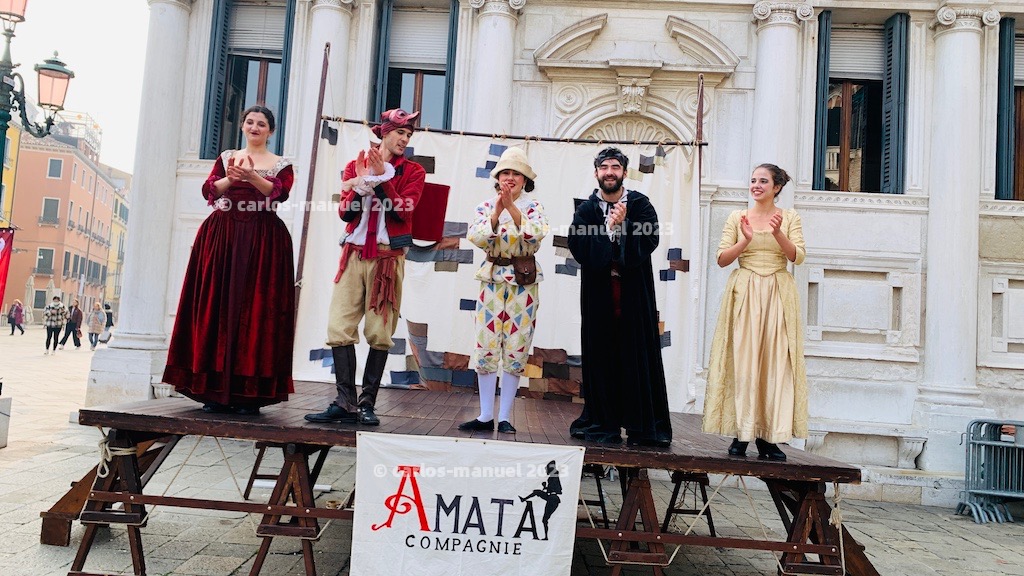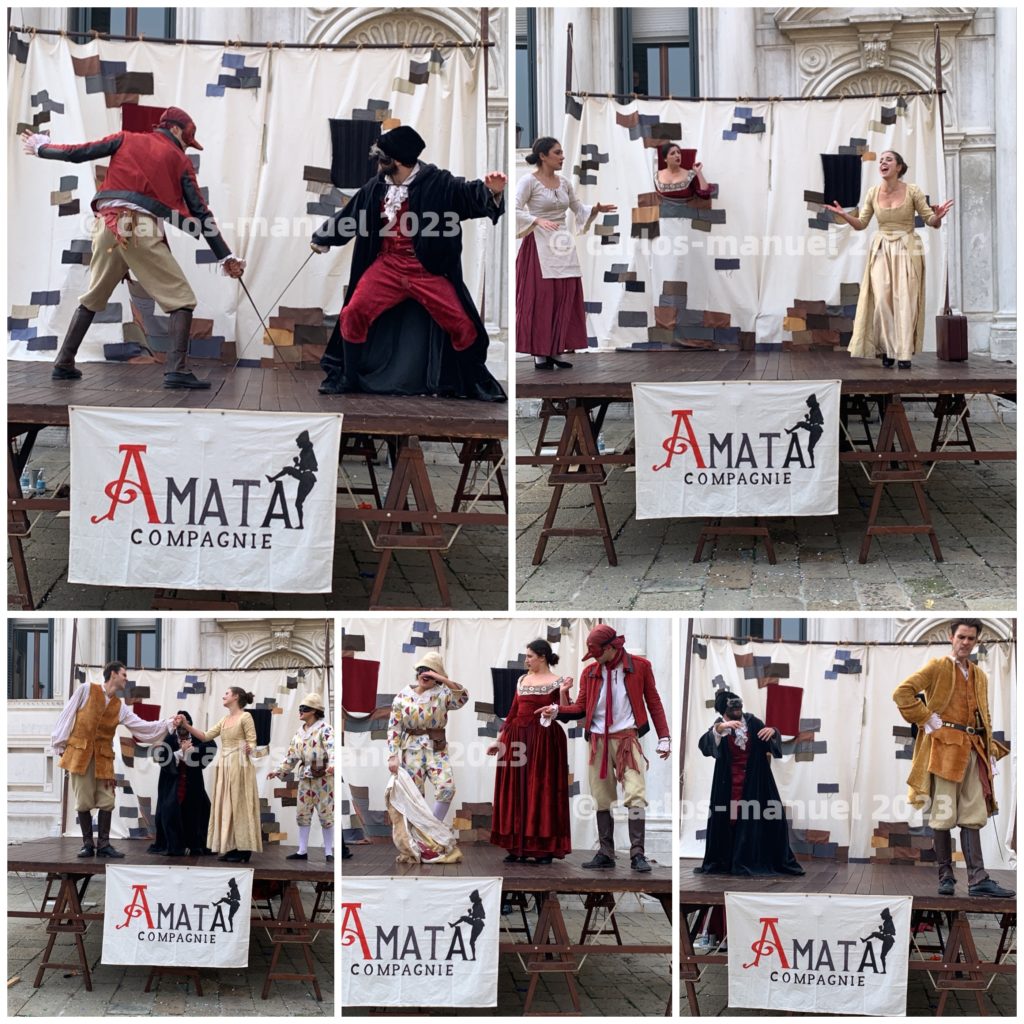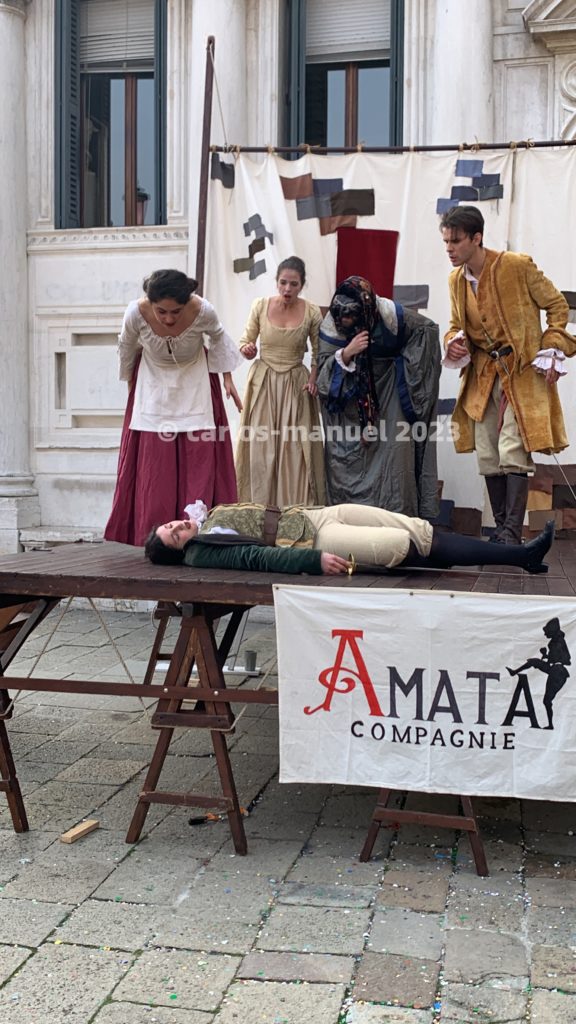00017: IL TRIONFO DI ARLECCHINO
The commedia dell’arte festival during the Carnevale, was an international event that also included two different countries: France and Rumania. Because I arrived during the second week of the festival, I missed the theatre presentation from Rumania, which only participated in the festival during the first week. Luckily, France was there for the second and third week so I had the opportunity to see their show.
“Il trionfo di Arlecchino” was presented by Amata Compagnie/Campagnia Amata (Amata Theatre Company) under the direciton of Carlo Boso (Carlo Boso is an Italian playwright and an international Commedia dell’arte figure living in France.)
What I truly loved about this theatre production was the fact that the play included French, Italian, and English. And all the actors spoke the three languages with ease. Aside from the trilingual acting, the play also included several songs in English, French, and Italian, several dance sequences, pantomime, several lazzi moments that connected an action with another, and on top of that all the actors played one of two different musical instruments. One of the central aspects of this production was the way the company of actors was able to interact with the audience and even integrate three different audience members into the story. In fact, one of the characters in the play ends up “marrying” one of the audience members.
Instead of trying to describe what happens in the play (the plot is too complicated), I rather like to repeat what the author/director wrote about the play: “Il trionfo di Arlecchino vuelo rappresentare un’inno all libertà di amare in un mondo contraddistinto dall’imperare di egoismi e di interessi personali.” (The play tries to present a hymn to the freedom of loving who we want in a world marked by the empire of selfishness and personal interest.)
So far, this has been the most theatrical play of them all. And it is because of its theatricality and the actors ability to play musical instruments, dance, sing, execute intricate physical movement, and speak in three different language that his play could become my favorite Commedia dell’arte Festival production.
The following is an excerpt from the production, presented by Compagnie Amata:



Leave a Reply
You must be logged in to post a comment.